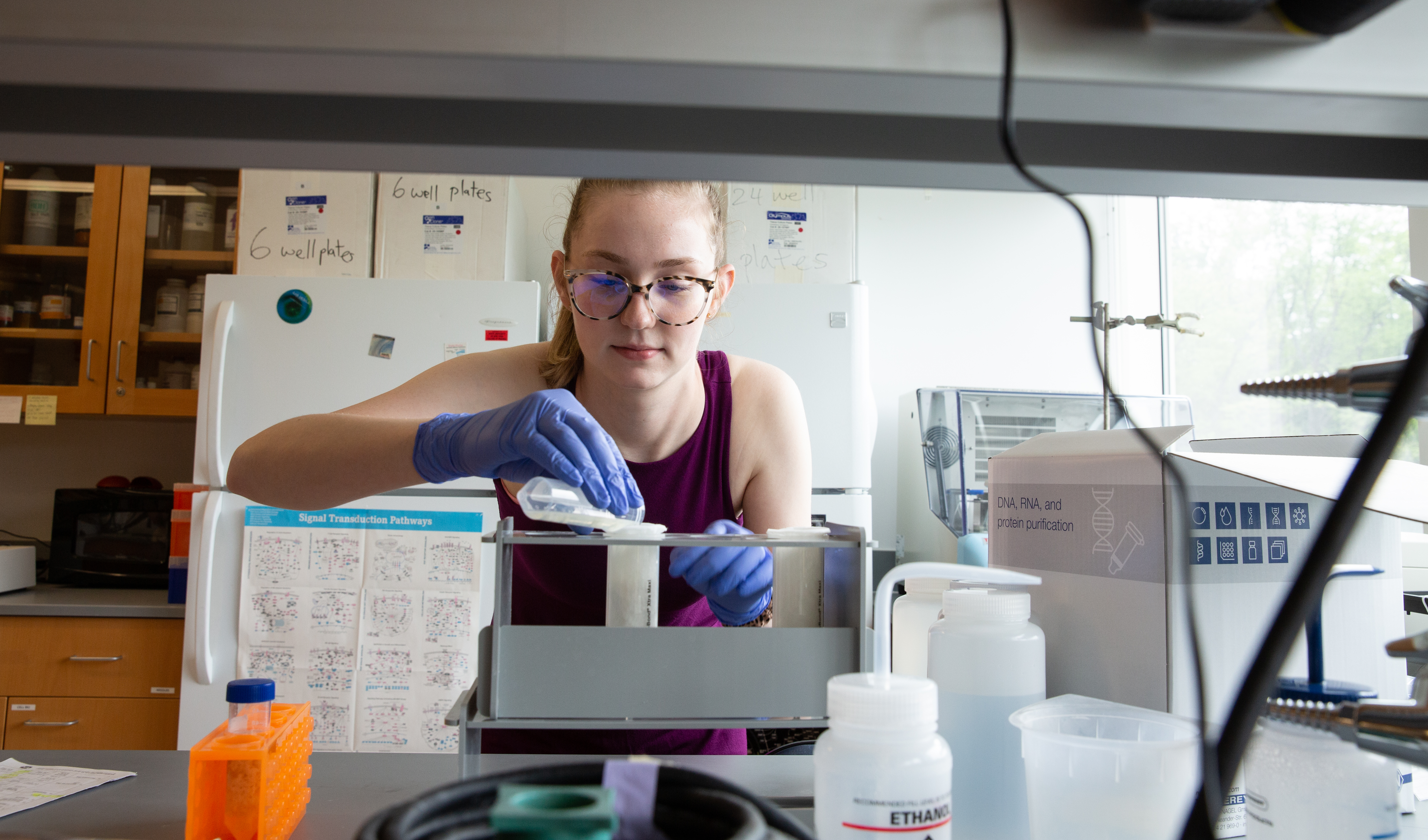

Accepted Students ONLY!
Join us Saturday, March 28 (10 AM–2 PM) for Go Big BLUE DAY — sessions, tours, and giveaways.
Sign Up Today!


Ever gazed at a forest teeming with life and wondered how it all fits together? Or pondered the microscopic world inside a single drop of water? If you're a biology student, a wildlife enthusiast, or simply curious about the natural world, understanding what it means to be a biologist can open up a universe of discovery. So let's explore what biologists do, why their work is vital, and how you can become part of this fascinating field.
A biologist is a scientist who studies living organisms and their interactions with the environment. They delve into various aspects of life, from the smallest cells to entire ecosystems, to understand how organisms function and adapt. Biologists are crucial in advancing our knowledge of the natural world and solving complex problems related to human health, conservation, and environmental sustainability.
Biology is a captivating field that encompasses a wide range of branches and disciplines. It involves the scientific study of living organisms, including their structure, function, growth, evolution, and distribution. Biologists aim to understand the complexities of life, from the molecular level to the intricate ecosystems that flourish on our planet. One defining aspect of biology is its diverse branches, allowing scientists to specialize in specific areas. Some major branches include:
These branches are just a few examples of the vast range within biology. Each contributes to our understanding of life and plays a crucial role in various scientific and practical applications.
The scope of biology is extensive, covering molecular mechanisms that govern cellular processes to the complex interactions between species in ecosystems. It explores fundamental principles of life, providing insights into how organisms function, adapt, and evolve. Studying biology is essential for several reasons:
Career opportunities for biologists are diverse, spanning academia, industry, and government sectors. In academia, biologists can become professors, researchers, or science educators. Industry options include roles in pharmaceuticals, biotechnology, environmental consulting, and conservation organizations. Government agencies, such as the Environmental Protection Agency (EPA) or the National Institutes of Health (NIH), also employ biologists to conduct research and provide expertise in various areas.
Forensic Science Technician: gather and examine physical evidence to assist in solving crimes.
Environmental Scientists: apply natural science expertise to safeguard ecosystems and public health.
Exercise Physiologists: design customized fitness plans to enhance overall health.
Biologists significantly contribute to science, enhancing our understanding of the natural world and the living organisms within it. They engage in various tasks involving research, experimentation, data collection, analysis, interpretation, and reporting.
To pursue a career as a biologist, individuals typically need relevant education and should consider various career paths. This section provides an overview of undergraduate and graduate programs in biology, specializations, and career opportunities in academia, industry, and government.
Undergraduate Programs
Undergraduate programs in biology are available at many colleges and universities, including Fredonia. These programs in biology provide a broad foundation in the subject, covering essential topics such as cell biology, genetics, ecology, and evolution. These programs also develop laboratory skills and research acumen.
Graduate Programs
For those seeking advanced knowledge and specialized training, graduate programs offer Master's and Ph.D. degrees. A Master's program provides in-depth study, while a Ph.D. focuses on original research, preparing individuals for academic and leadership roles.
Specializations
Biologists can choose to specialize in areas such as molecular biology, ecology, microbiology, genetics, and biochemistry. Specialization allows for deeper exploration of specific fields and tailored career opportunities.
Biologists possess a unique set of skills and qualities that enable them to excel in their field, attributes vital for professionals in many fields:

Biologists' work extends beyond laboratories and academic institutions. Their research and discoveries have profound impacts on healthcare, environmental conservation, and our understanding of life itself.
Biologists uncover the secrets of life, contribute to medical advancements, and play a crucial role in environmental conservation. Their work inspires future generations and enriches our understanding of the natural world.
If you're passionate about biology and eager to explore the wonders of life, consider pursuing a career as a biologist. Whether you're a student, a wildlife enthusiast, or a science lover, the field of biology offers endless opportunities for discovery and growth.
Ready to take the next step? Explore educational programs, connect with mentors, and join a community of like-minded individuals who share your passion for biology. Your journey into the world of biologists begins now.